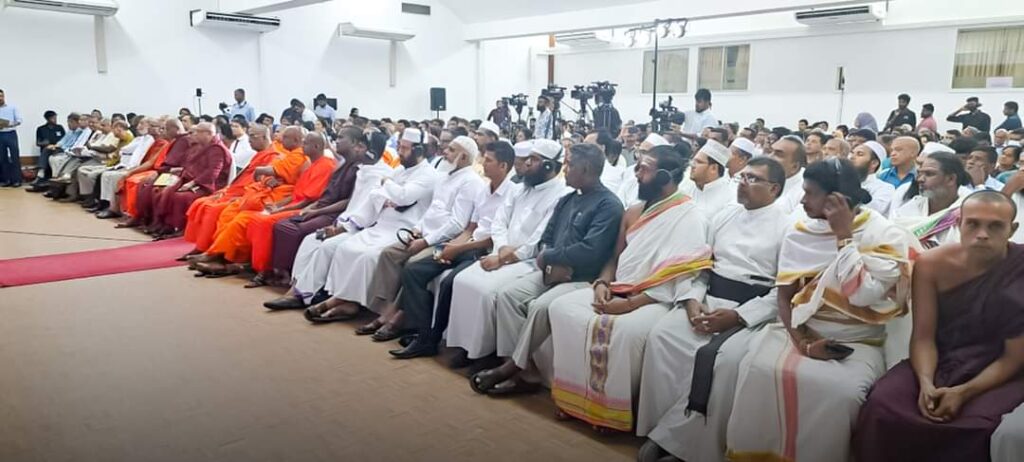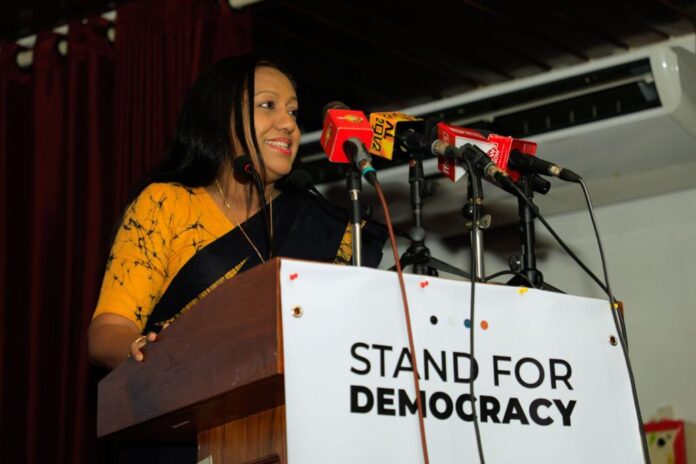Colombo (LNW): The Civil Society Collective for Democracy, also known by its slogan ‘Stand for Democracy’, a coalition of concerned citizens and organizations, including civil society organizations, professionals, academics, trade unions, youth leaders, activists, media personnel, religious figures, and other influencers, convened today at the Sri Lanka Foundation Institute (SLFI) to deliver a crucial wake-up call to the nation’s political leaders. The urgent call is to halt state repression and safeguard the democratic rights of the people, in order to ensure actual and equitable economic recovery.
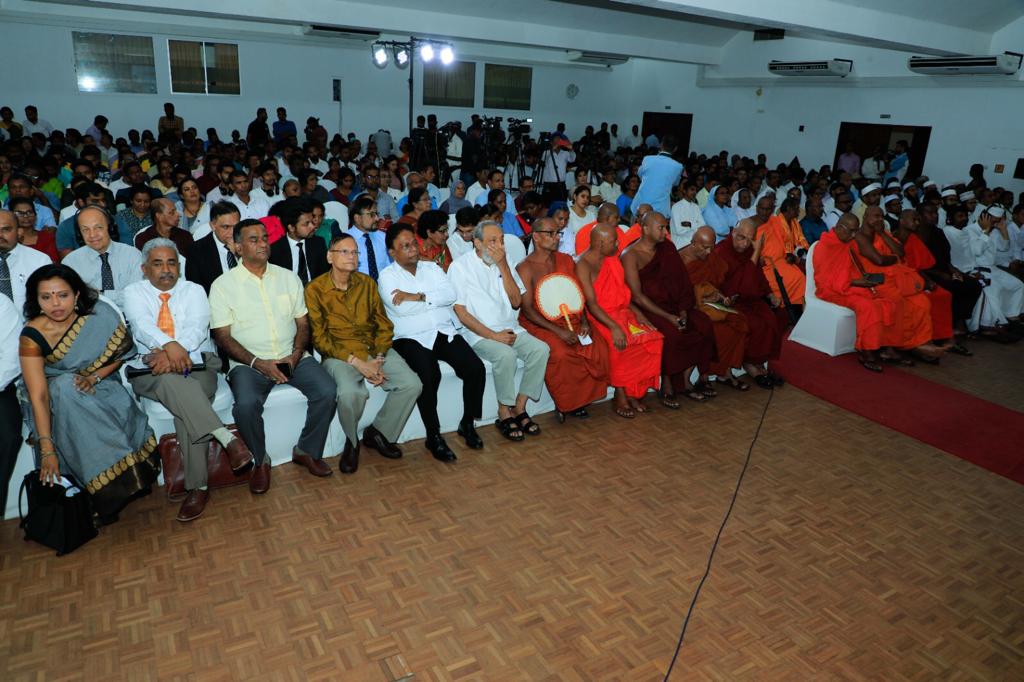
The Civil Society Collective expresses deep concern over the rapid shrinking of democratic space within the country, with Constitutionally guaranteed rights and freedoms such as the freedom of expression, right to information, right to dissent, right to protest, freedom of association and the right to franchise being snatched away, leaving citizens often powerless. This surge in silencing voices and the targeting and harassment of those who question the authorities, have created a chilling effect among the people, leading to self-censorship. Furthermore, the rulers have been abusing the International Covenant on Civil and Political Rights (ICCPR) and the contentious Prevention of Terrorism Act (PTA) to target political opponents, civil society activists, and journalists, contrary to international commitments, including those made at the United Nations Human Rights Council (UNHRC). The recent attempts to introduce extremely oppressive versions of laws such as the Anti-Terrorism Act, Broadcasting Commission Act and the NGO Act are examples of Government’s attempt to threaten and control democratic space.
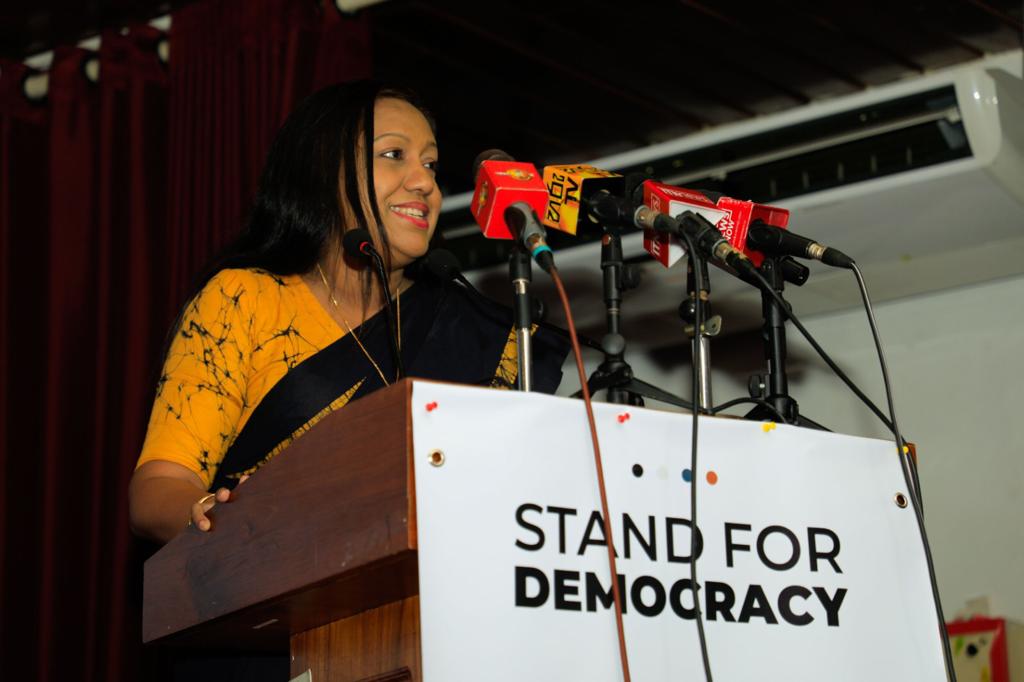
Recent statements from the President, the Speaker and even few parliamentarians that attempt to undermine judicial independence are deeply troubling. While the 21st Amendment to the Constitution has re-established the independent commissions, the recent acts of intimidation targeting members of the Election Commission and the Public Utilities Commission are examples of the disabling environment that has been created for these institutions. At the heart of the matter, citizens’ sovereign right to vote has been infringed upon using financial constraints as an excuse, an explanation lacking credibility. Currently Sri Lankans have no elected representatives at local and provincial levels and these institutions are governed by unelected officials controlled by a centralised executive. This if not addressed soon may call into question the definition of Sri Lanka as a democracy.
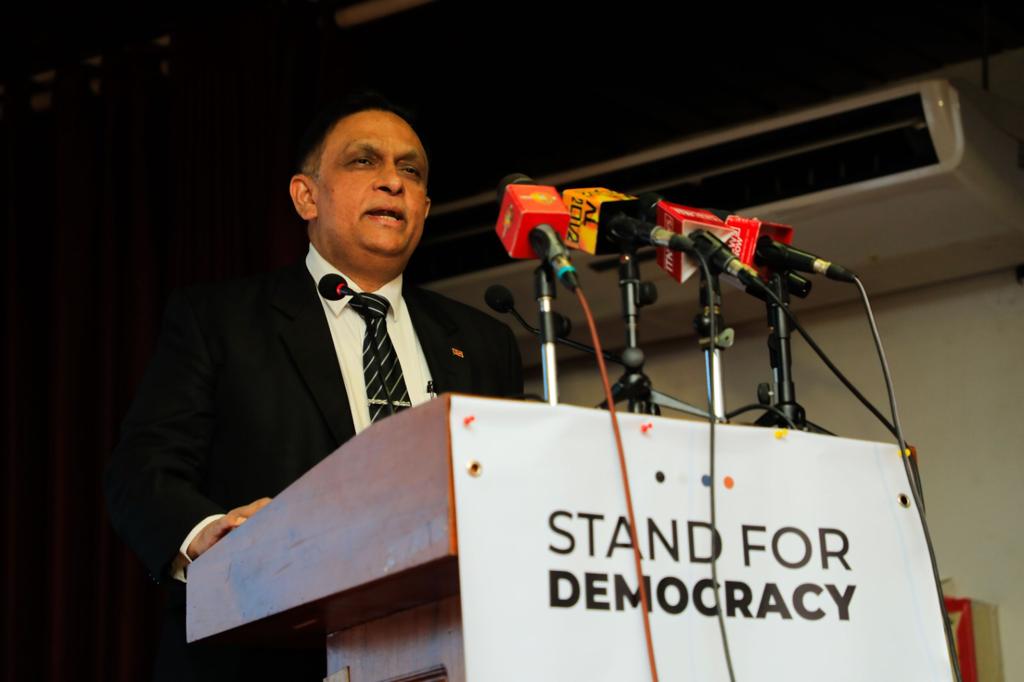
To uplift Sri Lanka from the economic crisis, it is essential to address its root causes – poor governance, lack of inclusivity and corruption. Unless these fundamental issues are addressed, Sri Lanka will continue to be considered as a complex investment context that will discourage investors and thus hamper economic recovery.
Ensuring transparency and accountability in governance is essential to prevent corruption and to ensure good governance. For people to be able to hold their representatives and the stewards of public resources accountable, they need to be able to exercise their democratic rights and freedoms. A truly democratic system would enable citizens to elect and vote out their representatives regularly, be involved and informed of all Government’s decisions that affect their lives, be able to dissent and make their voices heard in protest and be able to form collectives and exert pressure on the authorities to change course when necessary.
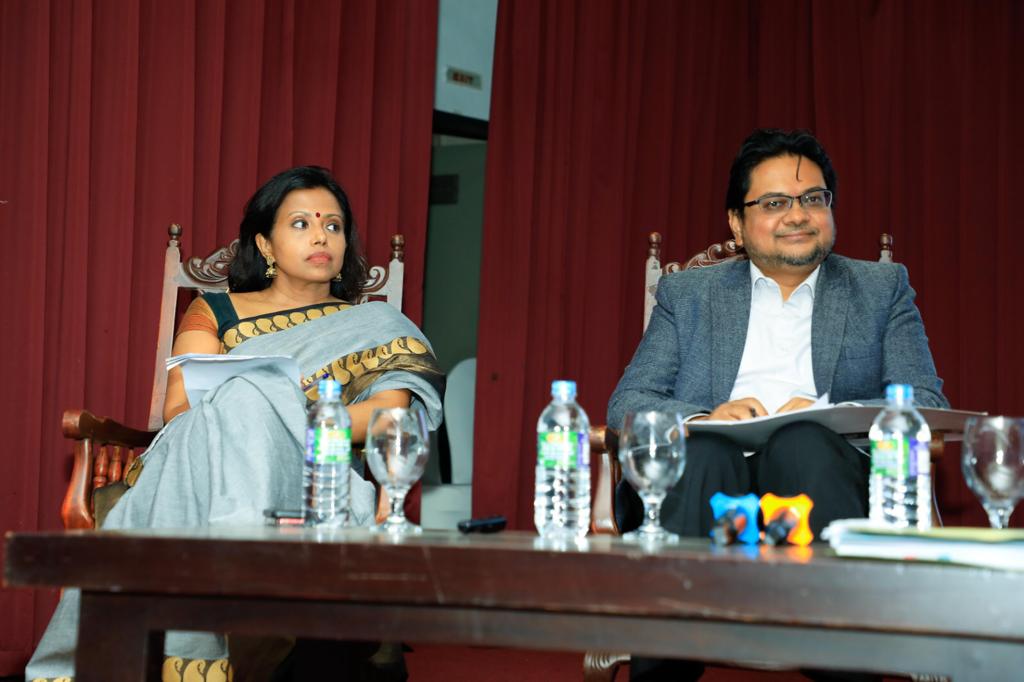
A government that acts in the best interest of the people and is genuine in its effort to uplift the economy will not hesitate to expose themselves to public scrutiny.
In line with these principles, the Civil Society Collective for Democracy calls upon the political establishment to take immediate steps to uphold and defend the foundational principles of democracy by:
– Ensuring that free and fair elections essential for inclusion are held on time, starting immediately with the Local Government and Provincial Council Elections.
– Uphold the fundamental rights of citizens, including freedom of expression and association and right to information.
– Protect civic space and create an enabling environment for civil society activism.
– Ensure citizen consultation and participation in steering economic recovery.
– Govern with transparency and accountability, ensuring full public scrutiny.
– Empower the independent commissions to fulfill their roles effectively.
– Take a genuine effort to implement essential anti-corruption reforms.
-Take action to prosecute past and present acts of corruption to end the climate of impunity.
